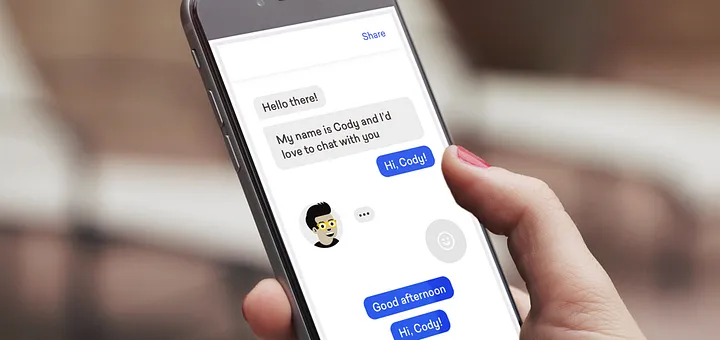
Chatbots in Healthcare: Should We Use Them?
Recently Google’s Med-PaLM 2 has been tested in research hospitals to find if it is suitable and can answer medical questions. This sparked a new debate over the use of AI chatbots in healthcare. Medical is the most critical field for AI. Unlike other fields like education or IT, where professionals can tolerate some mistakes because AI is prone to generate vague results. In the medical field, not even a minor mistake can be justified in the name of AI as it can worsen someone’s health or even be a reason for death. This is why using AI in healthcare has always been a sensitive topic for debate among scholars.
Testing of Google’s Med-PaLM 2 (an AI tool designed to answer questions about medical information) at the Mayo Clinic research hospital has been reported by several news outlets. They covered this testing, offered their opinions, and cautioned professionals about the uncontrolled use of AI chatbots in the healthcare sector. So the question confronts us is – Should we use AI chatbots in healthcare and if yes, then to what extent? Let’s find the answer, in this blog, from the perspective of AI chatbot developers.
What News Outlet Says?
An article from The Wall Street Journal focuses on the online battle between Google and Microsoft to offer AI chatbot services in the health sector. The article widely covered Google’s latest advancement in the medical chatbot system and said positives on it. And yes, we all agree with it. When it comes to reliable information Google always gives its hundred percent and tries to offer information not to earn profit but to keep the people’s safety as the top priority. The WSJ reported that Med-PaLM 2 is a variant of PaLM 2, which underpins Google Bard and we know that regardless of its slow growth and late release, Bard offers trusted search results rather than fast, simple, and personalized like ChatGPT. So whenever it comes to trust, Google always has an upper hand.
In the research, Google’s Med-PaLM 2 provided results with evidence of reasoning and showed almost no incorrect answers, more or less, we can say that this tool answered the questions as an actual doctor itself. But still, can we entirely rely on it? NO! At least at the current stage of AI. Then why we are developing them? Well, there are several reasons and ways that AI chatbots can help us and we can entirely rely on them for some functions that are time-consuming for humans in the healthcare sector.
Functions in Healthcare That AI Chatbots Can Perform Perfectly
- Appointments
Most of the time, we have to make an appointment to see a doctor and of course, we are not alone in doing that, a large number of patients schedule an appointment almost at the same time. This article on Wikipedia explains the ‘doctor shortage’ issue and declares that there are around 300 physicians per 100,000 people in the USA. So, an appointment is necessary along with being ready to stand in a long queue to wait for hours for our turn. Generally, hospitals appoint a team of schedulers to manage the appointments that are usually in vast numbers every day. These schedulers charge somewhere between $18 and $25 per hour. Hospitals and Doctors running private clinics can eliminate or reduce this cost manifolds by using AI chatbots.
In the current scenario, almost all hospitals hire a team of humans to handle the appointments but still, patients find it tough to navigate the scheduling system and have to wait for longer than required. An AI chatbot, integrated with a website/app, can help in this task by allowing patients to chat in conversational language and get an appointment based on the doctor’s availability. With some extra advancements, these chatbots can interact with CRM systems like Salesforce and help staff track visits and follow-up appointments for particular patients. This can not only enhance the efficiency of the staff but also offer patients personalized treatment. Chabots along with scheduling appointments can also process the payments and put the revenue generation on automation.
- Symptoms Assessment
Besides appointment scheduling, AI chatbots can also be used in symptom assessment. Several symptom checker bots can work as the first line of contact for patients while they visit the hospital. Chatbots, using artificial intelligence, can ask relevant questions and understand symptoms to offer automatic primary care, and if identifying high-risk patients can make a phone call to the available healthcare professionals for further assistance. These bots are also capable of scheduling in-person meetings if required.
During COVID-19, we have already seen the capabilities of AI chatbots, when they provide possible assistance and all the essential information to the public. This information includes guidance on what to do and what to don’t, the location of vaccination centers, and providing them helpline numbers with the estimated waiting or the exact time when the healthcare professional would be able to take their calls OR meet them in person.
A chatbot can also help patients shortlist relevant doctors/physicians and schedule an appointment. This not only saves a lot of time but also money and effort while offering patients an enhanced customer experience. These can greet patients on their entry, let them know the estimated waiting time, and ask for any kind of initial help. They can ask patients relevant diagnostic questions on their visit and collect data, so the doctor can have enough time to assess the patient’s health history and offer the fastest diagnosis possible without compromising reliability. The conversational and natural tone of AI robots provides customers with a reassuring experience at the very beginning that fosters trust and brings patients back to follow up the diagnosis process and take complete treatment. Artificial intelligence can calculate the frequency of the symptoms and the number of visits the patient did before to find the patient’s current health situation.
- Report Updates & Support
The most uncomfortable time for patients is to wait for the reports as the doctor can’t initiate treatment without analyzing the reports and finding the prime cause of the health issue(s) the patient has. Chatbots can be in contact with patients 24/7 and let them know the current status of their reports, for instance, they can tell at what point the process of a report has been reached so far. Also, can deliver the reports, whenever they are ready to be shared, using digital ways to the patients’ phone numbers or other means of communication. This is how bots seamlessly help patients keep track of their latest test results.
In case the patient is out of station or unable to find a way to reach the hospital, the AI chatbot can assist them in locating nearby testing centers or trusted pathology labs. It can provide the details of prices for various tests. This is very helpful in cases of urgency (the most critical time). The instant responses by a chatbot can save lives and build emotional closeness that helps patients feel good and trust the process.
Should We Use AI Chatbots in Healthcare
Of course yes, when it comes to primary care, AI chatbots perform amazingly. They can take over most of the human burden in healthcare services while significantly reducing human errors. However, AI, in its current form, is unable to replace most of the medical tasks but can offer primary assistance and provide information to patients. So, AI would take (we hope) not much time to replace the human assistant in second and tertiary care, but as for now, integrating AI bots with hospital websites or apps is an amazing way to offer fast and error-free service on the initial level.
Conclusion
We can’t deny that there are endless ways to use AI chatbots in multiple fields as they can talk to people more or less like humans. ChatGPT-like tools have demonstrated the ability of Artificial Intelligence. After its impact on Education, Technology, the Gig Economy, and other fields, the Healthcare Sector is ready to make a difference. If you are the owner of any healthcare establishment or a doctor running a clinic and want to learn more about how AI chatbots can help you to help your patients, fasten your service, and earn more revenue feel free to contact our professional AI chatbot developers, and start a new journey while leveraging the power of AI.




